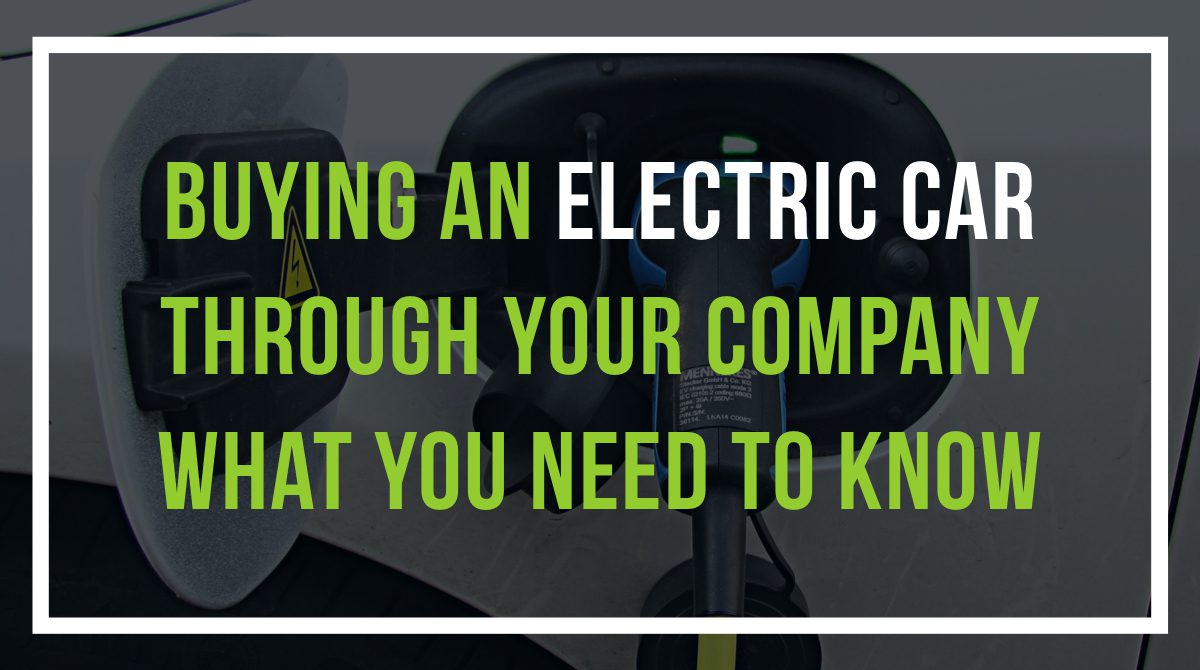Business News
Buying an electric car through your company – What you need to know.
21/07/2020
We are often asked if it is beneficial to purchase a car through the business. Over the last few years we have seen the evolution of more environmentally friendly cars, particularly electric vehicles, so does this mean that an electric car is more tax efficient?

For petrol and diesel cars, the tax for both companies and individuals running company-owned vehicles has increased significantly. However, over the last few years we have seen the evolution of more environmentally friendly cars, particularly electric vehicles so does this mean that an electric car is more tax efficient?
The tax and National Insurance (NI) incurred, and tax reliefs on cars is a complex area and we tend to look at individual cases rather than using standardised models. Thresholds and percentages are also regularly changing, which does not make it easy. Benefit in Kind (BiK) rates also change depending on the CO2 rating and the electric mileage range of the vehicle – These BiK rates also change each year.
Tax for the Employee:
BiK rates are shown in the table below. These percentages are applied to the full retail value of the vehicle including all extras you may have fitted.
| Vehicle CO2 emissions | BiK rate for cars registered after 6 April 2020 | |||||||
| 2019-20 | 2020-21 | 2021-22 | 2022-23 | |||||
| 0 g/km | n/a | 0% | 1% | 2% | ||||
| 1-50 g/km (electric range >130 miles) | n/a | 0% | 1% | 2% | ||||
| 1-50 g/km (electric range 70-129 miles) | n/a | 3% | 4% | 5% | ||||
| 1-50 g/km (electric range 40-69 miles) | n/a | 6% | 7% | 8% | ||||
| 1-50 g/km (electric range 30-39 miles) | n/a | 10% | 11% | 12% | ||||
| 1-50 g/km (electric range <30 miles) | n/a | 12% | 13% | 14% | ||||
A fully electric car with zero emissions and a retail price of £30,000 would therefore have no BiK for 20/21, £300 for 21/22 and £600 for 22/23. These figures would then be taxed on you at your highest rate of tax. So if you are within the basic rate band your tax payable for 21/22 would be £60 (£300 x 20%). You can see from the above that this BiK rate increases significantly where the electric range is lower for cars producing CO2.
Employers NI:
Whatever the BiK value is for the employee, there is an Employers NI charge of 13.8% per annum. A BiK of £300 would create Employers NI of £41.40.
Tax Relief for the Employer:
Where the car is bought brand new (strictly first registered owner only) the employer can claim a capital allowance of 100% of the price paid where the car is fully electric or has a CO2 rating of lower than 50g. A £30,000 purchase would reduce your taxable profit by £30,000 and give a corporation tax saving of £5,700 (£30,000 x 19%) in the year of purchase.
You should note though, that when the car is sold, any proceeds would have corporation tax charged at the rate for that year, currently 19%. So if you sold the car for £20,000 after two years, you would have to repay corporation tax of £3,800.
The employer will also be able to get corporation tax relief on the costs of maintaining and insuring the vehicle. For example, if the annual maintenance costs paid by the company were £2,000, there would be a tax saving of £380.
You can see from the above that it is therefore critical to know the following when considering an electric car purchase;
- The CO2 rating
- The stated electric range according to HMRC
- The full retail price of the car and any extras
- The car is brand new
These are significantly more generous rates and allowances than for normal vehicles which are heavily taxed.
If you would like detailed advice please call us on 0203 713 4530 or email nicky.owen@carringtongroup.co.uk






